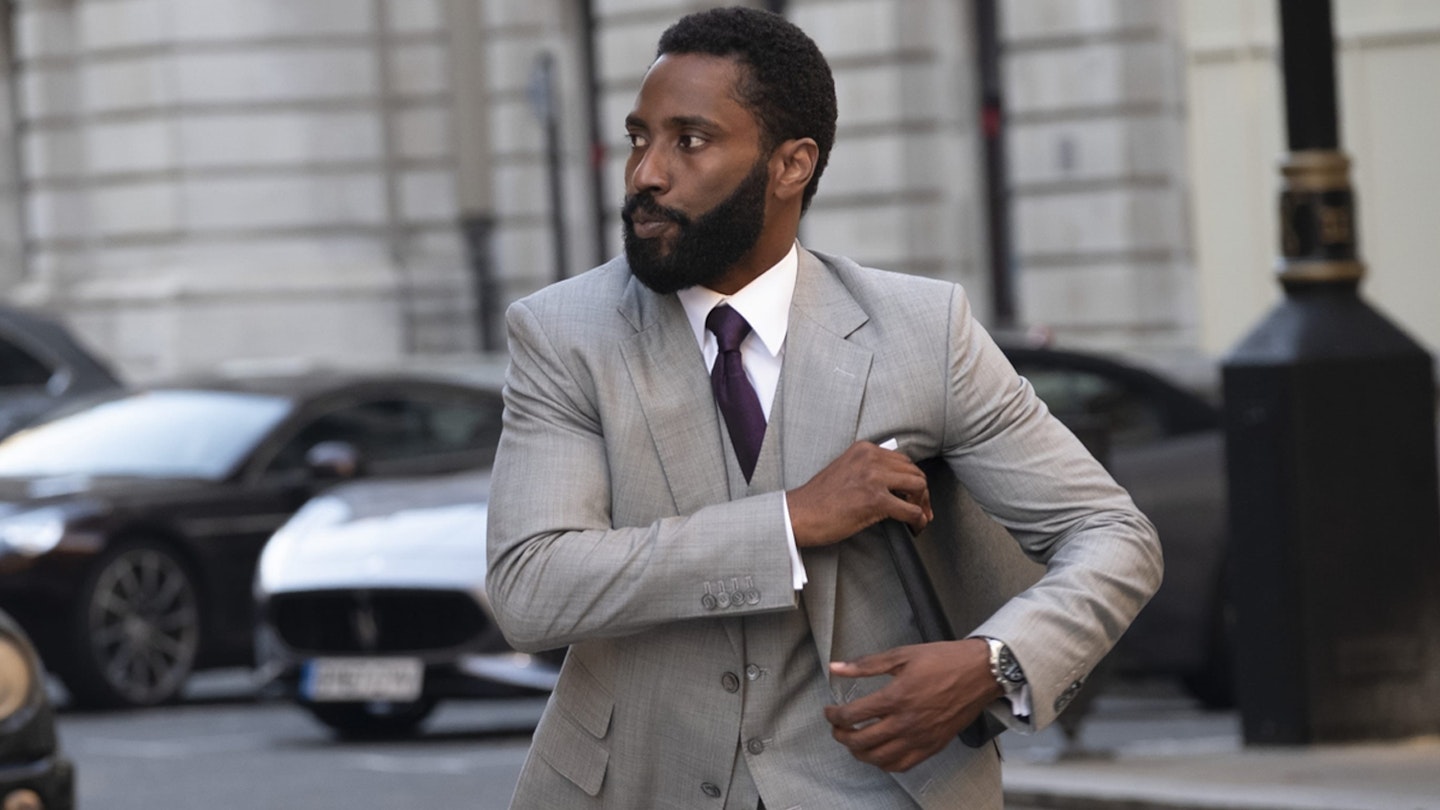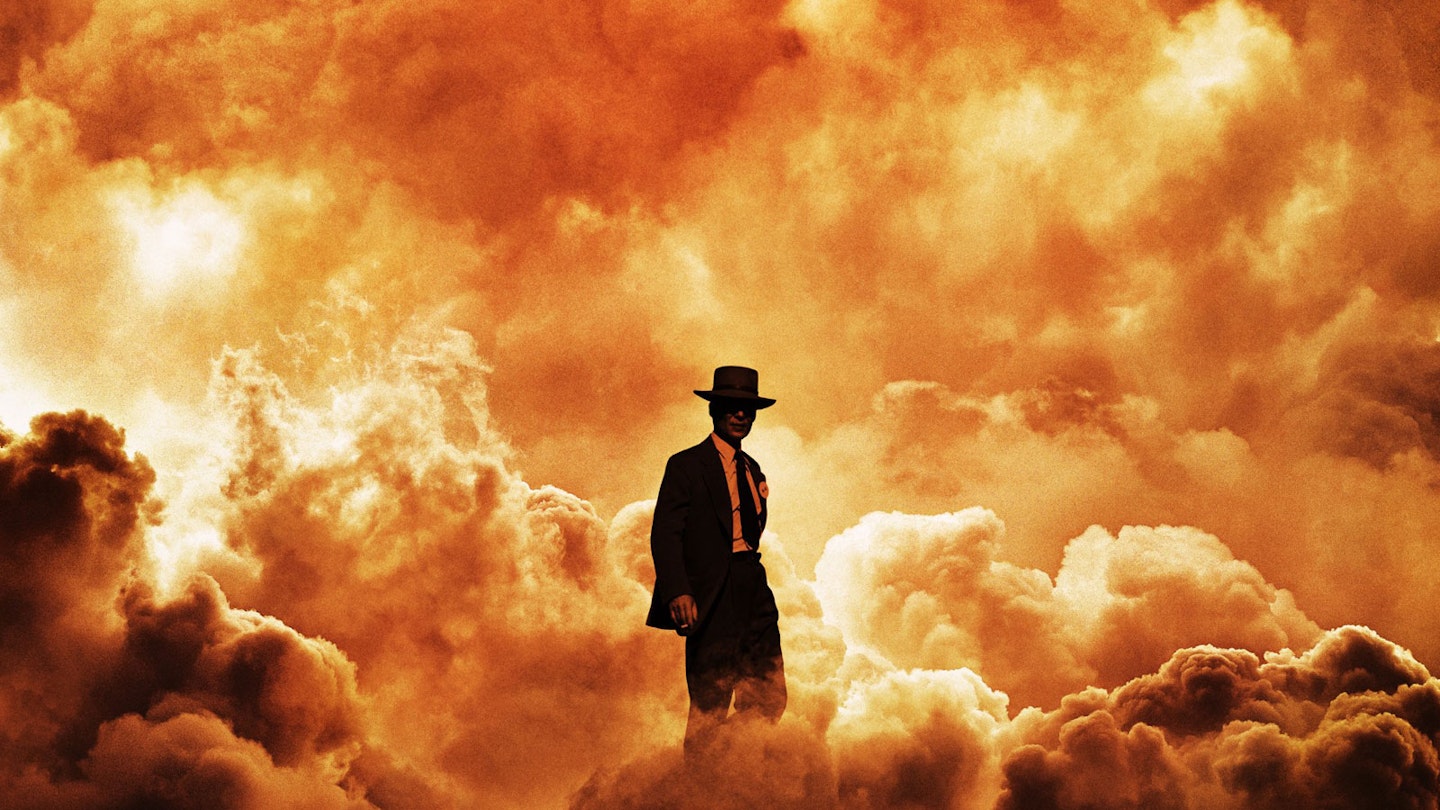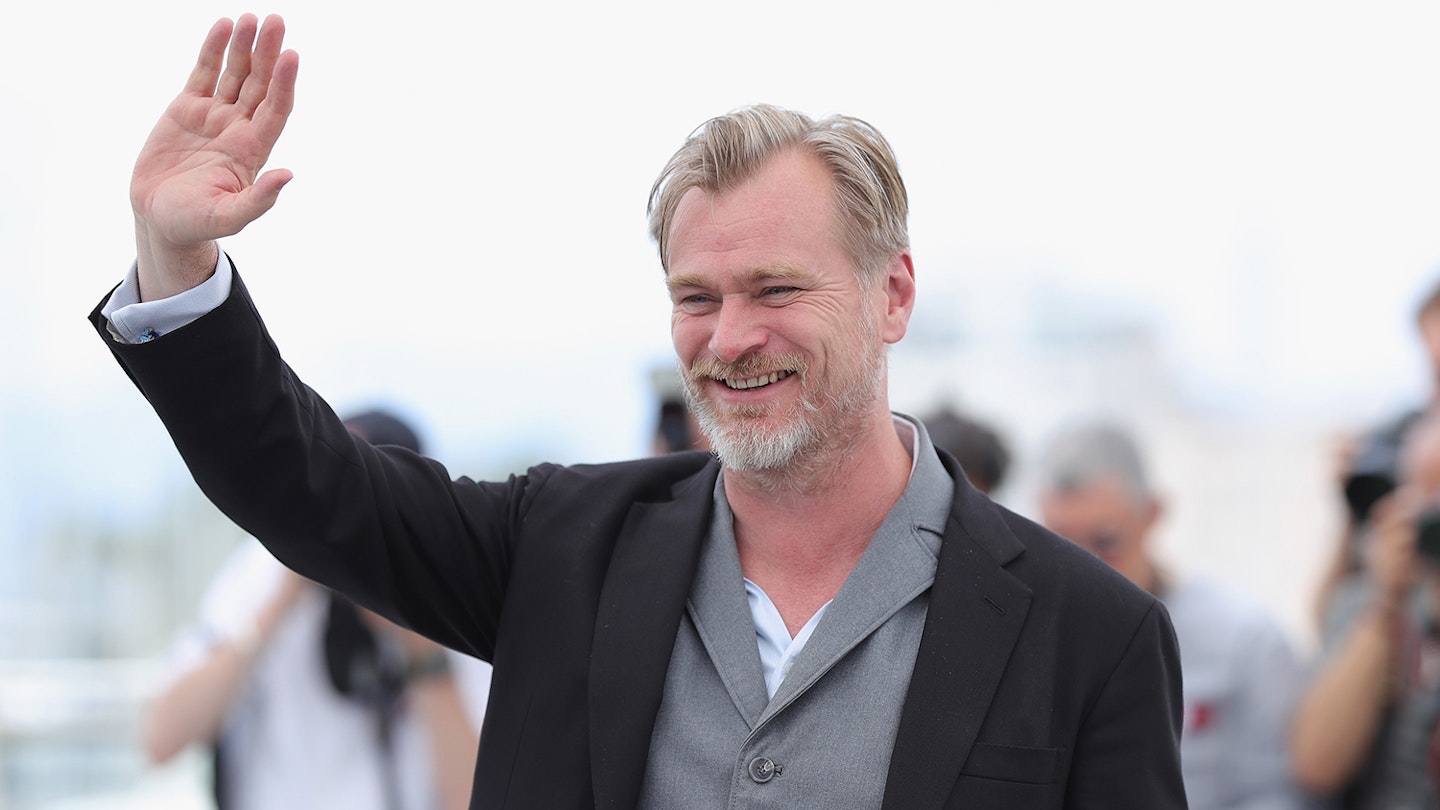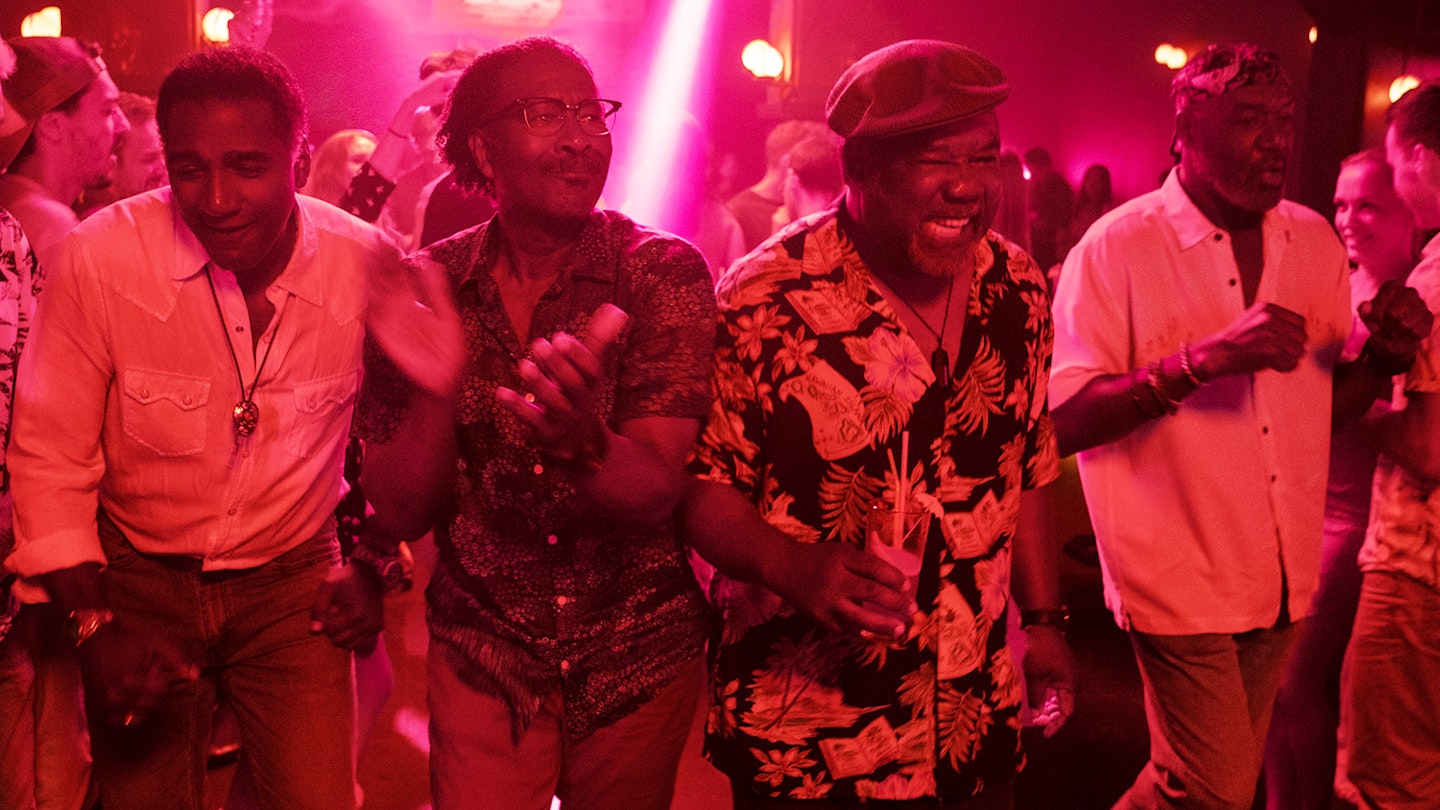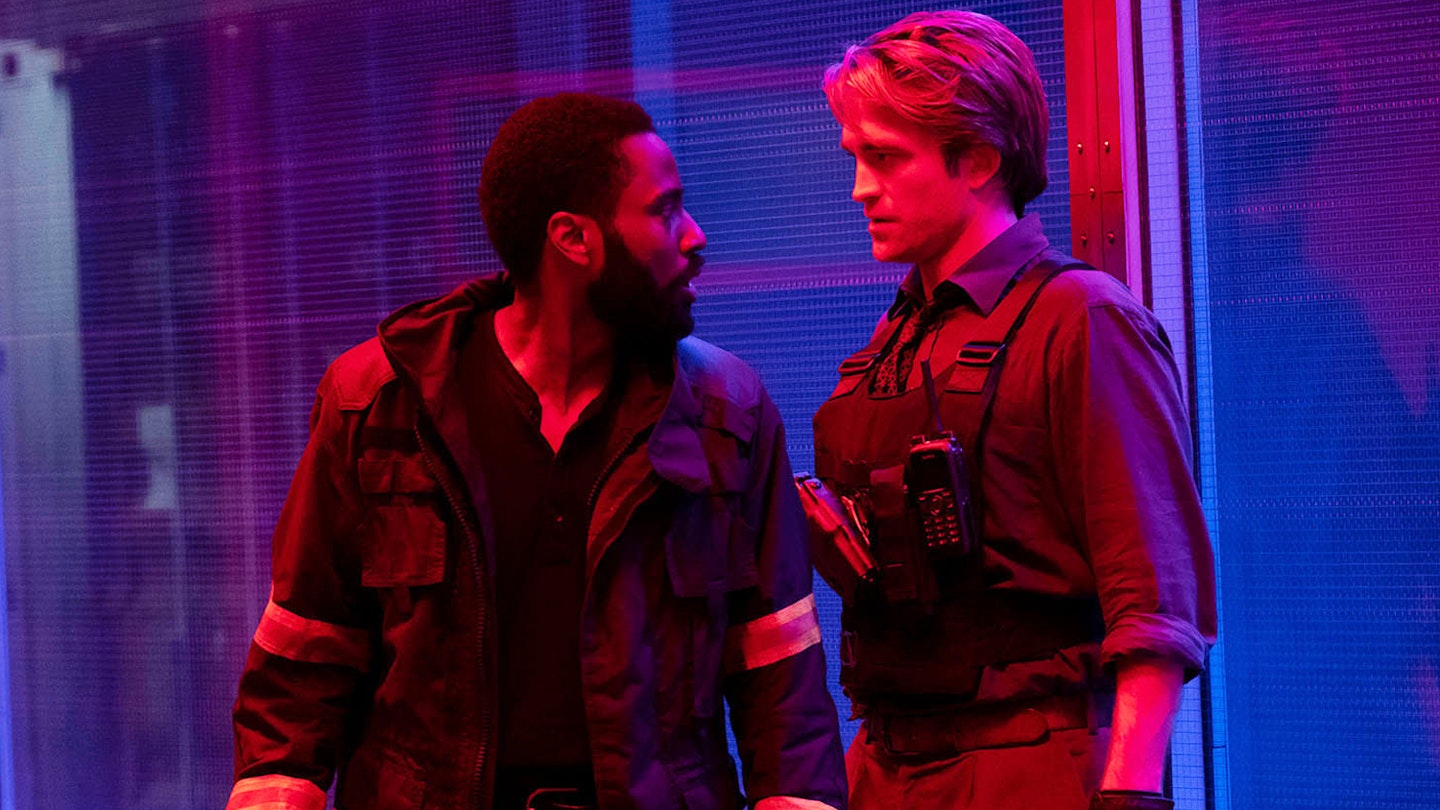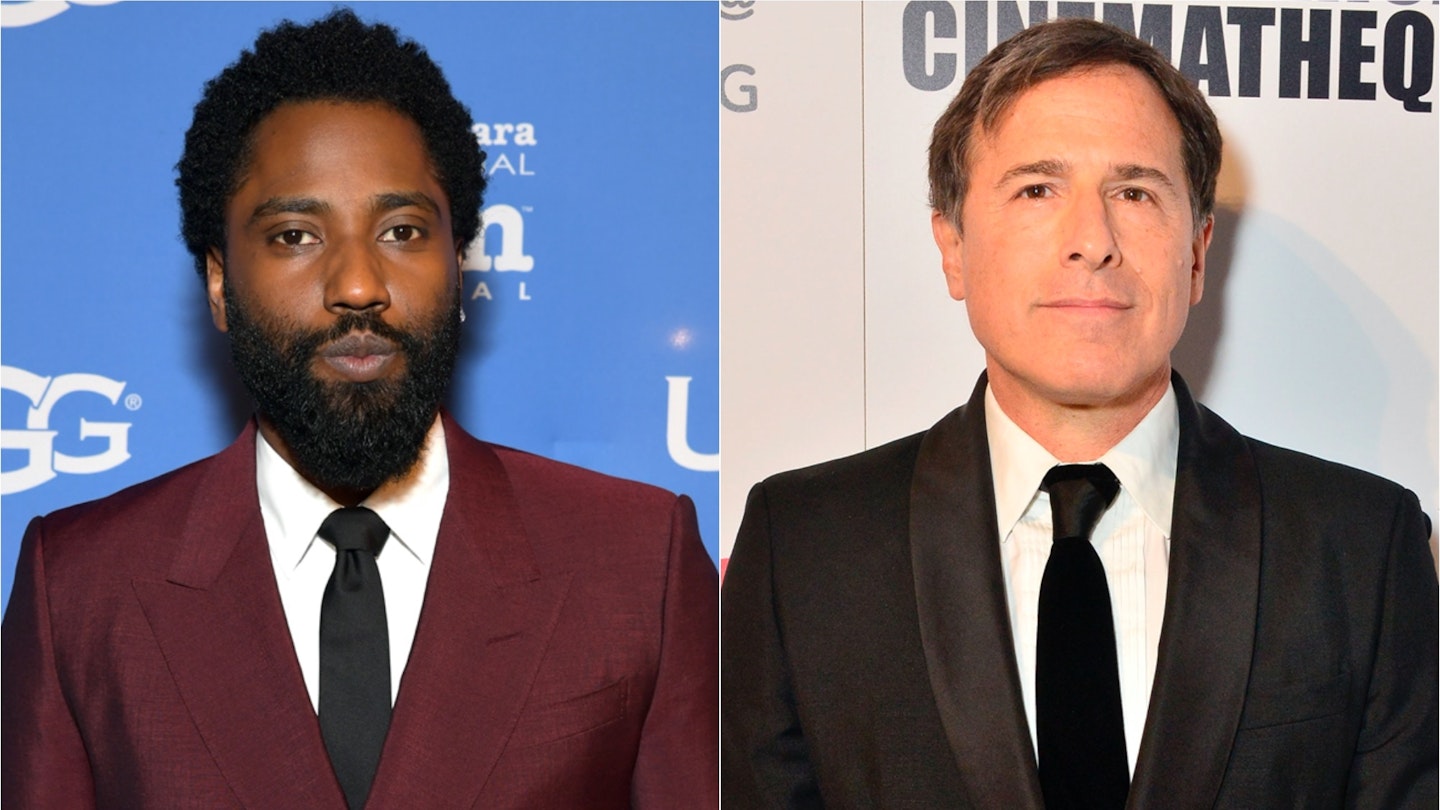The blams come thick and fast. Tenet, in fact, might be Christopher Nolan’s blammiest film yet. BLAM! A terrifying thing just happened. BLAM! A shocking moment of revelation. BLAM! Here’s a speedboat. (There really is a massive blam accompanying an otherwise ordinary shot of two people on a speedboat.) It’s not even Hans Zimmer this time — here the great Ludwig Göransson (Black Panther, The Mandalorian) is on scoring duties, making it all his own (you will nod your head intensely) but without ever scrimping on the blams. Because if a Christopher Nolan film doesn’t sound like the end of the world, then something’s wrong. And this one really is about the end of the world.
We’re told early on — defiantly and resolutely — that this is not a film about time-travel. There are a handful of instances in Tenet where one character lays things out to another, each time telling them it’s okay if they don’t quite get it. “Don’t try to understand it,” says Clémence Poésy’s Laura, Tenet’s Q to John David Washington’s James Bond, as she introduces him to backward bullets (they go back in time… don’t try to understand it) and gives him a brief primer. It’s not time-travel, she tells him, it’s “technology that can reverse an object’s entropy”. In other words, Christopher Nolan wants you to know that this is not Back To The Future. This is serious business. This is about the prevention of World War III. “Nuclear holocaust?” asks Washington’s protagonist. No, she says — this is worse.
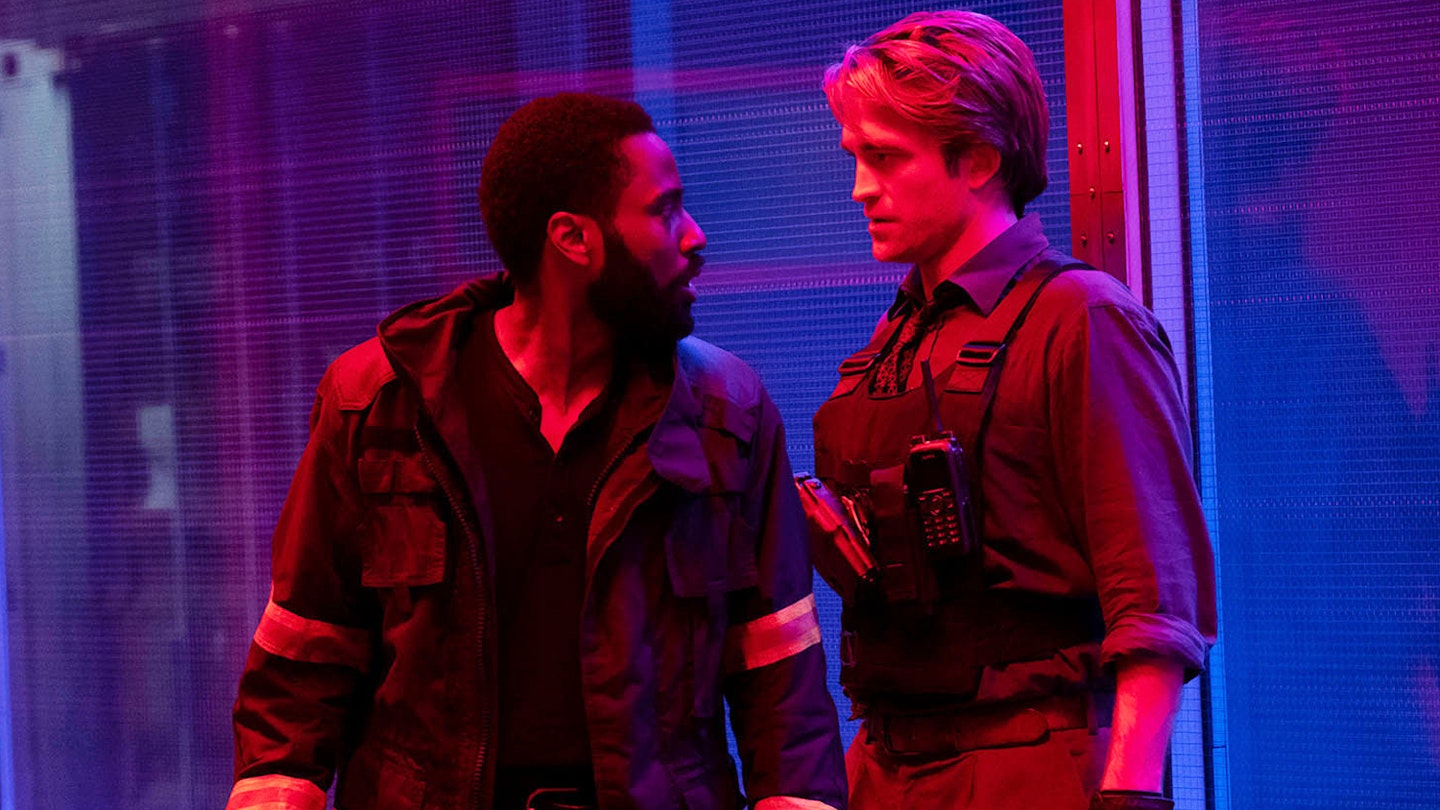
This scene, Nolan setting out his stall, is scored sumptuously, romantically — it’s one big swoon, and it speaks volumes. Despite a complex relationship serving as the film’s broken heart (courtesy of Kenneth Branagh’s arms-dealing oligarch Andrei and his estranged and abused wife Kat, played by Elizabeth Debicki), Nolan’s great love affair, of course, is with time itself. From Memento’s muddied, memory-straining recollections to Dunkirk’s triple-pronged timeline and Interstellar’s generational rifts, he can’t get enough of the stuff, and Tenet is awash in it. It’s not a plot device — it’s the thing itself, something to be explored, investigated, played with, twisted, bent.
Nolan has made his own Bond film here, borrowing everything he likes about it, binning everything he doesn’t, then Nolaning it all up.
And yet: this is an action film. It opens with a brutal, prolonged siege at the Kiev Opera House, in which people fight for their lives and lose, in which all hell breaks loose, and in which Göransson and Nolan’s sound designers intend to deafen you. You have Washington and Robert Pattinson bungee-jumping up and into a building (and that’s without any of the time-bending). You have a lean and mean kitchen fight in which a cheese grater is deployed (and not for cheese). You have a 747 being blown up, you have a thrilling car chase (which does feature some time-bending), and extended set-pieces in which your eyes will see things they haven’t quite seen before. For the most part, there are no Hollywood hysterics; it is big — often very big — but not bombastic.
Tenet is Bond without the baggage. Filmed in Italy, Estonia, India, Norway, the UK and the US, it’s a globetrotting espionage extravaganza that does everything 007 does but without having to lean into the heritage, or indeed the clichés. Just as with Indiana Jones, for which George Lucas persuaded Bond fan Steven Spielberg they could create their own hero instead of piggybacking on someone else’s, Nolan has made his own Bond film here, borrowing everything he likes about it, binning everything he doesn’t, then Nolaning it all up (ie: mucking about with the fabric of time). And while Washington — never not magnetic, every second of this film – isn’t a suave playboy in the slightest, he has the swagger — and the odd wisecrack. “Easy,” he says in response to some light manhandling from one of Andrei’s security goons. “Where I’m from, you buy me dinner first.” In the same sequence, Andrei — a big bad if ever there was one — asks him: “How would you like to die?” Elsewhere we meet an arms dealer who casually swigs his whiskey while he has a gun to his head. This is absolutely the same playground that 007 runs around in, with the same toys. It just feeds it all through a physics machine.

For the most part, that’s welcome. “Try to keep up,” one character says in regards to the mechanics of it all. “Does your head hurt?” another asks later. Somebody is told they need to stop thinking in linear terms. No doubt some big brains will be fine with all of this — and will be able to follow the plot — but for the rest of us, Tenet is often a baffling, bewildering ride. Does it matter? Kind of. It’s hard to completely invest in things that go completely over your head. The broad strokes are there, and it’s consistently compelling, but it’s a little taxing. No doubt it all makes sense on Nolan’s hard drive, but it’s difficult to emotionally engage with it all.
If that’s even what the film wants us to do. These are great actors — Washington, Pattinson, Branagh and Debicki are all immensely watchable — but only towards the end, as things begin to pay off, do you really get the chills here and there. For the most part, everybody’s on a mission, doing their job, the film barely stopping to breathe, certainly not to take any sentimental detours. And nobody involved looms larger than Nolan himself. This is a film engineered for dissection and deconstruction. Just as Inception was, this is an M.C. Escher painting, but folded, origami-like, and with holes poked into it for its own denizens to fall through. It may not be Back To The Future, but regardless, it has its cake, eats it, then goes back in time and eats it again. It may not be a hokey time-travel film, but that doesn’t mean Nolan can’t get his rocks off playing around with paradoxes.
And ultimately, for all of that, Tenet once again proves Nolan’s undying commitment to big-screen thrills and spills. There’s a lot riding on this film, to resurrect cinema, to wrench people away from their televisions, facemasks and all. It may well do the trick: if you’re after a big old explosive Nolan braingasm, that is exactly what you’re going to get, shot on old-fashioned film too (as the end credits proudly state). By the time it’s done, you might not know what the hell’s gone on, but it is exciting nevertheless. It is ferociously entertaining.
